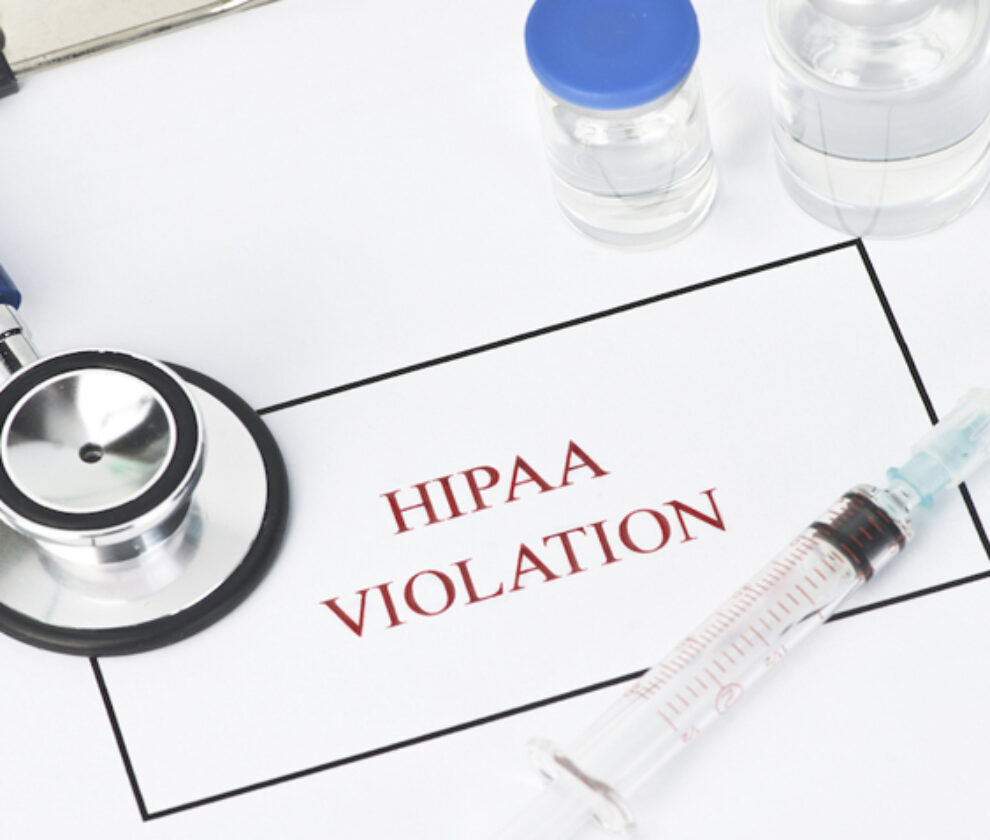HIPAA or less commonly known as Health Insurance Portability and Accountability Act is a set of violations that are some restriction barriers that all medical businesses should avoid at all costs. While these violations are very strict and severe in nature, they are quite normal for medical businesses to come across.
Truth be told, even an international medical business may encounter minor HIPAA violation cases every year or so. However commonly occurring they may be, HIPAA violations are something that should not be treated with light-hearted behavior. Violating them can cause serious financial fines and penalties for the medical businesses.
This is why all doctors who own their online medical businesses must be aware of what HIPAA violations are, why is it important to stay HIPAA compliant, and what to do if you violate one of the sanctions. Doing so will keep your medical business running successfully.
What Are HIPAA Violations?
HIPAA violations are part of the HIPAA act that was introduced in 1996. This act centers around limiting the power medical businesses hold over the PHI (Patient Health Information) they attain when they gain patients.
What Are The Fines Charged For HIPAA violations?
The U.S. Division of Health and Human Services (HHS) and the Office for Civil Rights can decide fines and punishments according to the nature of the violation committed by a medical business.
Though, generally, the most common violations can be fined up from $500 to $50,000 per violation. If the nature of the violation is very serious and sensitive in nature, medical businesses can be fined as well as closed down for business and face jail time.
What Are The Five Most Common HIPAA Violations?
There are a lot of HIPAA sanctions that you need to stay clear from, but among them are the five biggest, most common ones that you should avoid at all costs to keep your medical business up and running.
Prying Into Patient Healthcare Records
Patients give up their personal healthcare information trusting the medical business. This information, however, must be allowed by the Privacy Rule. The Privacy Rule refers to only asking for patient information for the purposes of medical treatment only.
Asking for information that surpasses the Privacy Rule is a violation of patient protection, thus a HIPAA violation. This also refers to prying and sneaking around on medical services records of the patient’s family or acquaintances is one of the most common HIPAA violations committed by medical businesses. Doing so can result in closing the medical business and facing criminal charges.
Keeping Unencrypted Patient Data
Patient data is very sensitive. In order for medical businesses to contain it, the data must always be safe by encrypting it. This adds an extra layer of network protection on the precious data and avoids it failing into the wrong hands.
Not only does this keeps the data safe but also makes it easier to store and transfer if need be. This is a requirement that all medical businesses must follow to remain HIPAA compliant. Keeping patient data unencrypted, is a violation of HIPAA and can cause serious damage to the patient if the data is hacked by cyber-hackers.
Allowing Unauthorized Access To PHI
As mentioned before, when you ask for patients to fill out the forms regarding their personal information, whether online or not, you must treat that information with utmost care and security. HIPAA very deeply looks into the handling of patient information and you can easily violate one of its sanctions if you are not careful enough.
This is why you should not allow access to every employee in your medical business to patient records and information. Your employees getting access to the patient information if they’re not approved for is a HIPAA violation. Regardless of whether they’re just looking after the patient data or just arranging it if they are not authorized, it’s still considered a violation and bring about a fine of thousands of dollars.
Removing Or Mishandling Of PHIs
Once a patient fills out their form asking for their personal information, you as a medical business must always handle it with care and use it for its intended purpose only, which is the patient’s treatment. Mishandling of patient data refers to sharing it to unauthorized third parties, dealing with it with carelessness, accidentally “leaking” it while transferring it, and so on.
To avoid violating a HIPAA sanction, you must always handle the PHI with care by encrypting it from the get-go and keenly monitoring it when it is getting transferred or arranged in your records.
Leaking PHI To Unauthorized Parties
Connected with the last violation, leaking the PHI is a major HIPAA violation that can cause you a penalty worth $50,000 at least. If you do want to share the PHI, for instance, for gathering patient testimonials for medical website, you must always get the patient’s consent and get it in the record for legal purposes. If you choose to opt for unauthorized ways to displaying the PHI, it will be considered as leaking the patient data and violating one of the most serious HIPAA violations.
What To Do If You Violate A HIPAA Compliance
It is very common to come across a HIPAA violation, even with the best efforts to avoid them. However, once you become aware of a violation, you must make haste to deal with it immediately. Dealing with a HIPAA violation begins with identifying the nature of the violation and its severity. Get your legal advisor involved and try to amend the situation as moderately as possible.
Stay HIPAA Complaint To Avoid Financial And Business Loss
One of the major things to consider before getting into opening an online medical business is becoming familiar with HIPAA violations. Your, as the owner of your medical business, your medical staff and employees must become aware of the violations, what they are and how to avoid them to abstain from running into any unfortunate circumstances in the future.


